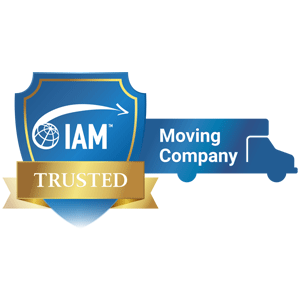
7 Tips
for Moving to Cebu, Philippines
Moving to a new place can be both exciting and overwhelming, especially if it’s to a foreign country. Cebu, Philippines, is a popular destination for expats, offering a warm and welcoming culture, stunning beaches, and a lower cost of living compared to other cities in Southeast Asia. If you’re moving to Cebu, here are seven tips to help make the transition as smooth as possible.
Moving to Cebu
Most people are attracted to the Philippines not only because of the beautiful beaches and the culture but also the much lower prices. Before actually moving to Cebu, Asia Relocation is here to make sure you get these seven things checked on your list.

1. Research the Cost of Living
Before moving to Cebu, it’s essential to research the cost of living in the city. You’ll want to consider housing, transportation, food, and entertainment expenses. While the cost of living in Cebu is relatively low compared to other cities in Southeast Asia, it’s still important to plan your budget accordingly. Here are some key factors to consider when estimating your expenses:
- Housing:
The cost of housing in Cebu can vary depending on the location and type of accommodation. For example, a one-bedroom apartment in the city center can cost anywhere from 30,000 to 50,000 PHP (approximately 600 to 1000 USD) per month. If you’re looking for a more affordable option, consider living in a suburban area or sharing an apartment with roommates. - Transportation:
Transportation costs can add up quickly, especially if you rely on taxis or private vehicles. Consider using public transportation, such as jeepneys or buses, to save money. A one-way trip on public transportation typically costs around 8 PHP (approximately 0.15 USD). - Food:
The cost of food in Cebu can also vary depending on your dining habits. Eating at local restaurants or street food stalls is relatively cheap, costing around 100 to 200 PHP (approximately 2 to 4 USD). However, if you prefer to dine at more upscale restaurants, be prepared to pay more. - Entertainment:
Entertainment expenses in Cebu can also add up, especially if you enjoy going out to bars and clubs. Consider finding free or low-cost activities, such as visiting local parks or museums, to keep your entertainment budget in check.
2. Secure a Place to Live
Securing a place to live is one of the most important steps when moving to a new city. There are many options available in Cebu, ranging from apartments to houses. Consider your budget, lifestyle, and location when choosing a place to live. If you’re unsure where to start, reach out to a real estate agent or search online for rental listings. Experts at relosmart.asia recommend that you schedule the move to your new residence as soon as you sign your lease.
3. Learn the Language
While English remains widely spoken in Cebu, investing time in learning the local languages, particularly Cebuano or Bisaya, can significantly enhance your experience and integration into the community. Beyond basic communication, proficiency in these languages fosters deeper connections and understanding of the local culture. Consider enrolling in language courses tailored to expats, many of which now offer flexible online options, allowing you to learn at your own pace from anywhere.
In addition, language exchange programs and immersion experiences can provide invaluable opportunities to practice and refine your skills while forging meaningful connections with locals. As more expats choose to make Cebu their long-term or even retiring home, embracing the local languages enriches your daily interactions and demonstrates respect for the vibrant cultural tapestry of the Philippines.

4. Familiarize Yourself with the Culture
The Philippines is a friendly and welcoming country, but it’s important to familiarize yourself with the local culture before moving to Cebu. This includes learning about customs, traditions, and social norms. Doing so will help you avoid cultural faux pas and make it easier for you to integrate into the local community.
It’s vital to be aware of Cebu’s sense of community. Filipinos place a strong emphasis on family and relationships, and it’s not uncommon for extended families to live together or to have close relationships with neighbors. Joining local community groups or volunteering in local organizations can be a great way to meet new people and become a part of the community. Furthermore, make sure to be mindful of the social and economic differences in Cebu. While the city is home to a thriving business and tourism industry, there are also areas of poverty. Being respectful and sensitive to these differences is important in building positive relationships with the local community.
5. Plan for Transportation
First things first, make sure you plan out your flight well before moving to Cebu. So there will be no surprises on a moving day. Transportation is an essential aspect of daily life in Cebu. While many options are available, such as jeepneys, taxis, and tricycles, it’s important to plan for transportation before moving to the city. Consider the distance from your home to your workplace and the cost of transportation when making your plans.
6. Find a Community
As Cebu continues to attract a diverse expat population, a thriving community scene offers opportunities for social interaction and integration. Expats can connect with like-minded individuals through various platforms, including social media groups, community forums, and expat-oriented events. Also, joining local clubs, sports teams, or volunteer organizations provides expats with avenues to immerse themselves in the local culture while forging meaningful connections. Moreover, language exchange programs and cultural workshops facilitate cross-cultural understanding and enrich expats’ experiences in Cebu.

7. Be Prepared for Culture Shock
While moving to Cebu promises exciting adventures, it’s essential to anticipate and manage culture shock effectively. Expats should approach their transition with an open mind and willingness to adapt to unfamiliar customs and traditions. Seeking support from fellow expats, local residents, or professional counseling services can help individuals navigate the challenges of adjusting to a new environment. Embracing cultural differences with curiosity and respect fosters mutual understanding and enriches the expat experience in Cebu. By proactively acknowledging and addressing culture shock, expats can embrace their new life in Cebu with confidence and resilience.
To Sum Up
In conclusion, moving to Cebu, Philippines, can be a wonderful experience, but it’s crucial to plan ahead. From researching the cost of living to familiarizing yourself with the local culture, these tips will help make your transition to Cebu as smooth as possible. Good luck, and have fun on your new adventure!



























